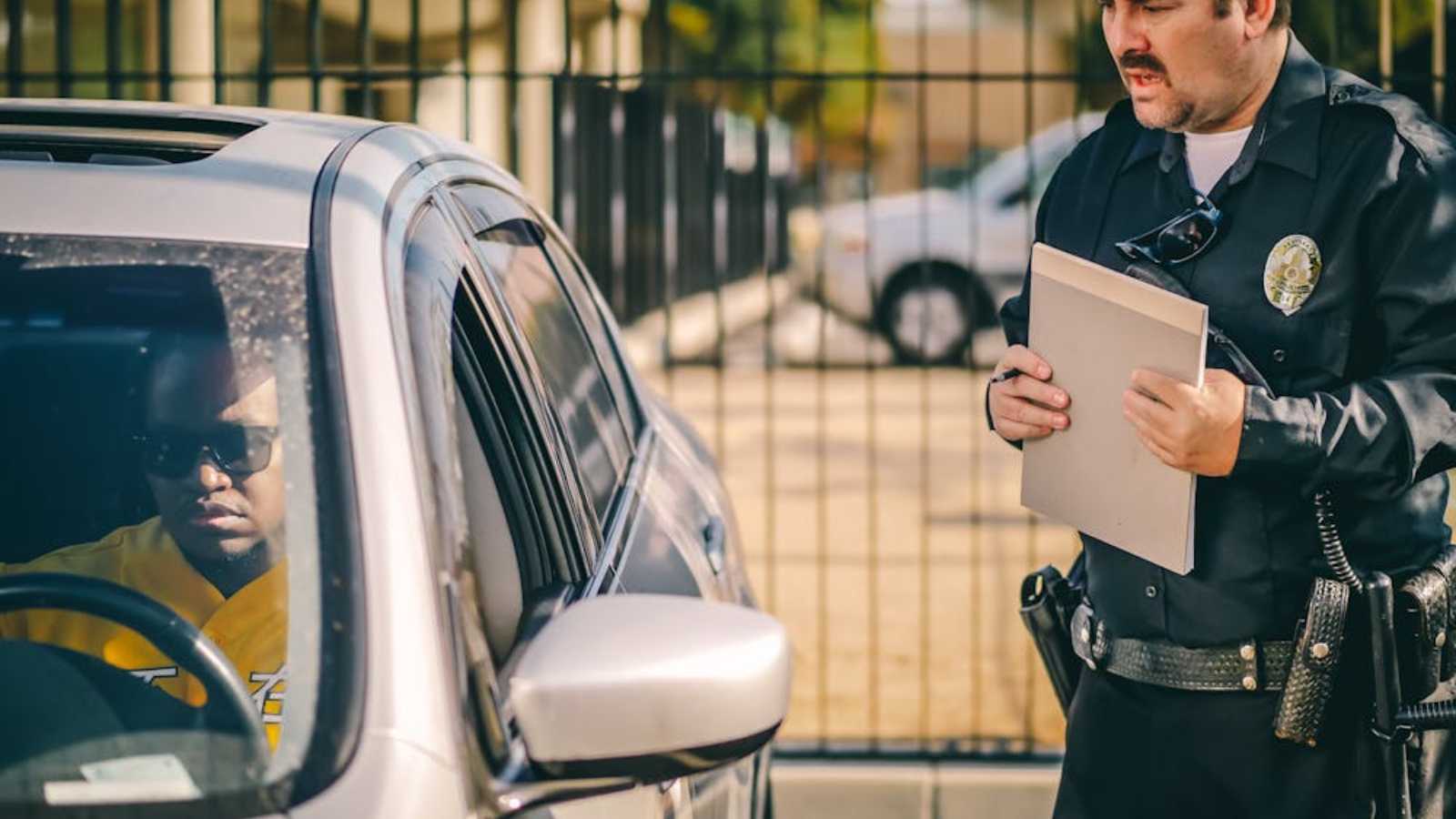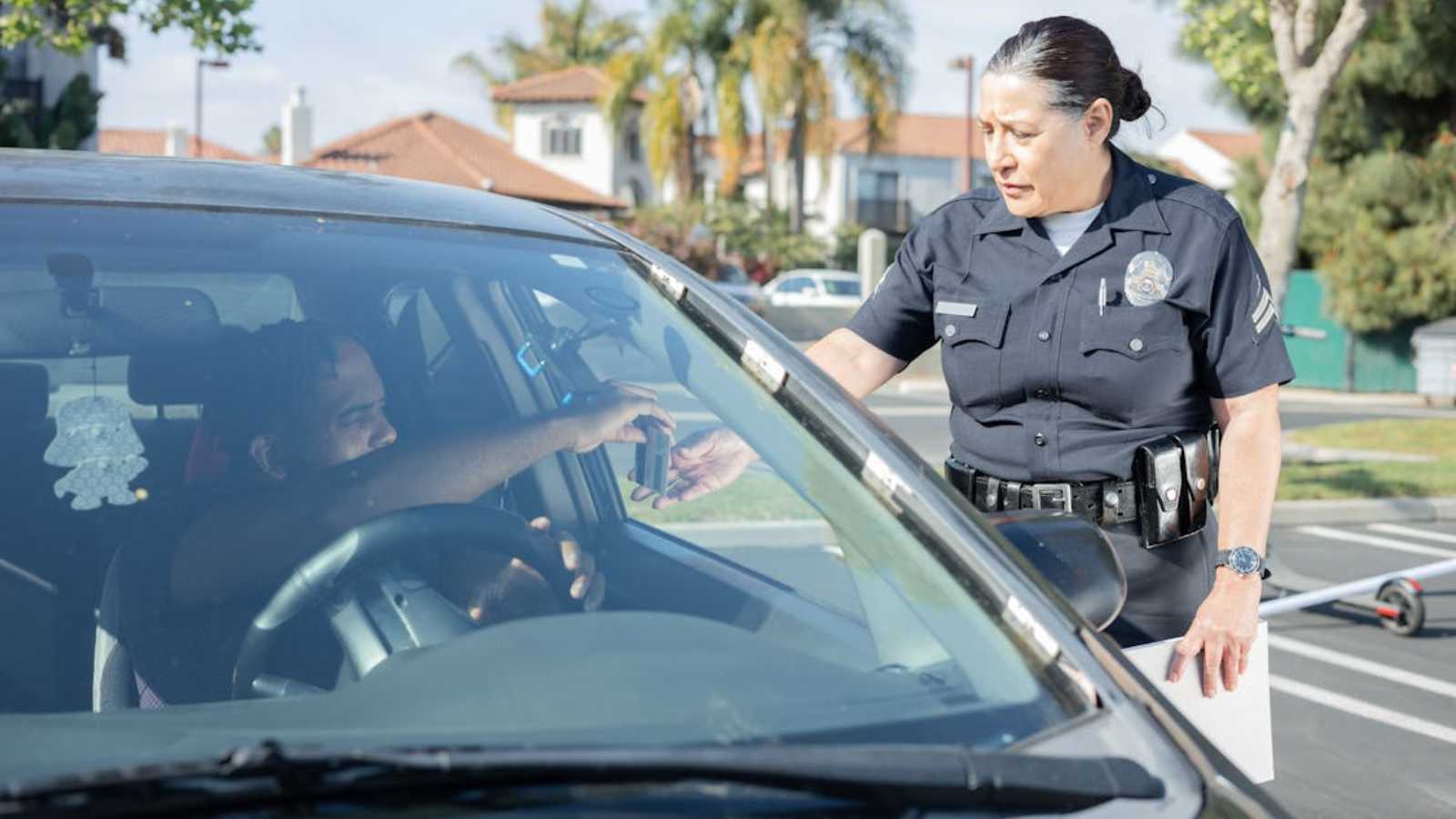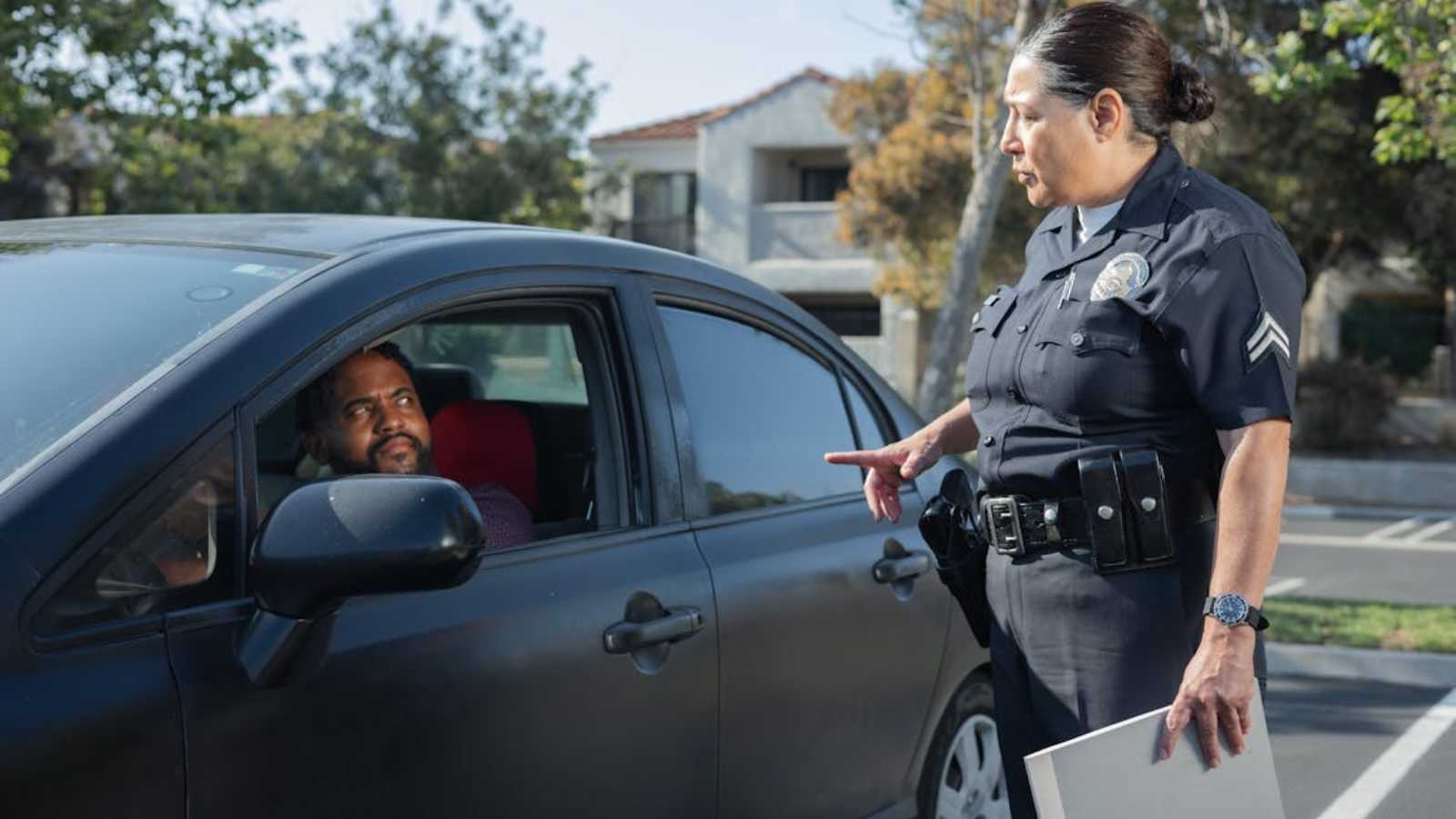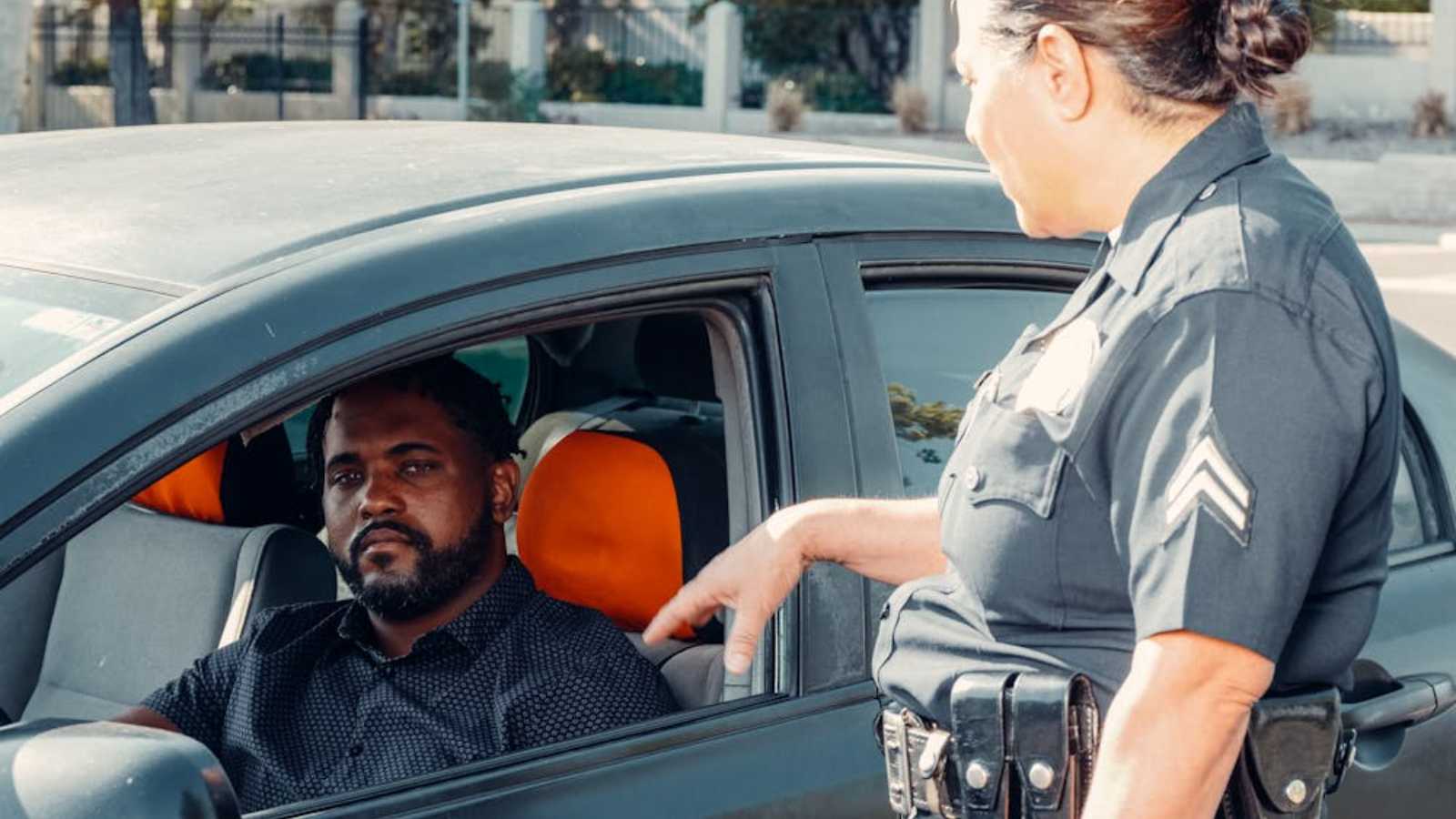Don’t accidentally incriminate yourself by answering these 9 common police questions

Seeing those flashing red and blue lights in your rearview mirror triggers a primal, gut-wrenching panic that no amount of clean driving history can cure. I’ve been there, gripping the steering wheel of my hatchback, heart pounding like a techno beat, wondering if I accidentally crossed a line. But here’s the kicker: according to the Stanford Open Policing Project, police conduct over 50,000 traffic stops a day in the US, and they often use these interactions to hunt for criminal inconsistencies rather than just enforce traffic safety.
You need to know that the roadside is not a level playing field. Officers train extensively in psychological manipulation tactics designed to bypass your defenses, while you just want to get home to your dinner. Data from 2024 reveals that while stops for minor infractions are dropping in places like Los Angeles due to new pretextual stop policies, the psychological game remains strong. This guide breaks down the nine verbal traps officers set for motorists and explains how to sidestep them without losing your cool.
Do you know why I stopped you?

Officers use this classic opener to trick you into admitting guilt before they even tell you the accusation. By answering “Was I speeding?”, you hand them a confession on a silver platter, which validates their probable cause and removes their burden of proof. California recognized the unfair nature of this inquiry in 2024 by enacting AB 2773, a law that actually prohibits officers from asking this question before stating the reason for the stop.
However, if you drive outside the Golden State, you likely still face this trap. Criminal defense experts universally recommend a polite “No, officer” or “I’d like you to tell me”. This forces the officer to articulate their specific reason for the detention immediately, locking them into a narrative they cannot easily change later if the facts don’t line up.
Where are you coming from?
Police colloquially call this the “fishing expedition,” and they use it to find inconsistencies in your story or link you to nearby criminal activity. If you say “I’m coming from work,” but you’re driving away from the business district at 11 PM, the officer notes that discrepancy as “reasonable suspicion” to extend the stop. Even worse, if you truthfully admit to leaving a specific bar or neighborhood where a crime just occurred, you unwittingly place yourself at a crime scene.
The Supreme Court ruled in Rodriguez v. United States that police cannot extend a traffic stop beyond the time reasonably required to address the ticket just to fish for other crimes. By answering these “itinerary questions,” you voluntarily extend the conversation and waive those time-limit protections. A friendly “I prefer to keep my travels private” effectively shuts down this line of questioning.
Have you had anything to drink?
We all know the “just one beer” fallacy, yet drivers keep falling for it, believing that honesty will win them leniency. Real talk: admitting to consuming any amount of alcohol provides the officer with the reasonable suspicion they need to pull you out of the car for Field Sobriety Tests (FSTs). These tests are notoriously tricky; you might fail them while stone-cold sober just because you’re nervous or have insufficient balance.
Legal experts emphasize that under Salinas v. Texas, your silence can be used against you in court unless you explicitly invoke your rights. So, staring blankly at the officer when they ask this is dangerous. Instead, you must actively state, “I am invoking my Fifth Amendment right to remain silent,” to protect yourself fully.
Do you have anything illegal in the car?

This question is a calculated stress test designed to provoke a “behavioral spike” or nervous glance that justifies a search. Statistics paint a grim picture here: The Stanford Open Policing Project analyzed nearly 100 million stops and found that officers search Black and Hispanic drivers at significantly higher rates than white drivers, despite finding contraband less often on minority drivers. This suggests officers usually use this question to manufacture suspicion based on bias rather than evidence.
Responding with “No” seems safe, but it opens you up to the “Are you sure?” follow-up loop. The best move? Politely decline to answer. Remember, you have the right to remain free from unreasonable searches, and answering this question often leads directly to the next trap on our list.
Do you mind if I look around?
Officers phrase this request ambiguously—”Do you mind?”—to create a linguistic trap where a “No” (meaning “I don’t mind”) counts as consent. FYI, once you give permission, you waive your Fourth Amendment protection against warrantless searches, and the officer can tear your car apart without liability for the mess. Data from Portland shows that officers ask for consent in only 0.4% of stops now, likely because educated drivers have stopped falling for it.
Never try to out-polite the police by letting them search; you never know what a previous passenger might have dropped under the seat. A firm, polite “I do not consent to any searches” is the only safe answer. This isn’t about hiding something; it’s about asserting your fundamental civil rights.
Is this yours?
If an officer finds contraband in a car with multiple passengers, they ask this to establish “ownership” and “control,” the two pillars of possession charges. They often play the “Prisoner’s Dilemma,” telling passengers that if no one confesses, everyone goes to jail. This relies on the legal doctrine of “constructive possession,” where the state can charge every occupant for an item found in a shared space, according to Georgia Criminal Law.
Do not try to talk your way out of this by claiming “I didn’t know it was there,” because prosecutors can twist that statement into an admission of knowledge. Silence is your best friend here. Let the lawyers argue about ownership in court, not on the roadside where you have zero leverage.
Why are you so nervous?
This is gaslighting, pure and simple. The officer highlights your physical reaction—shaking hands or rapid breathing—to make you self-conscious and induce more suspicious behavior. They know perfectly well that everyone gets nervous when a person with a gun and the power to arrest them stands at their window.
Courts have ruled that nervousness alone does not justify a search, but nervousness plus inconsistent answers does. By trying to explain why you’re nervous (“I’m just late” or “I’ve had a bad day”), you often reveal the inconsistency they are looking for. IMO, the best response is to say nothing or simply ask, “Am I free to go?”.
Just be honest with me
This tactic comes straight from the “Reid Technique” of interrogation, utilizing “false empathy” to lower your guard. The officer might say, “I don’t want to ruin your night, just tell me the truth and we can work this out.” Don’t buy it; police officers legally cannot make binding deals or offer immunity—only prosecutors can do that.
Professor James Duane, author of You Have the Right to Remain Innocent, calls this the most dangerous trap because it exploits our social conditioning to trust authority. When an officer asks you to “be honest,” they are asking you to build the case against yourself. As Professor Duane famously says, “I cannot help you” is what your lawyer would tell if they were there, so why help the police?
When did you last smoke marijuana?
With the legalization of hemp and recreational cannabis in many states, the “smell of marijuana” is no longer the slam-dunk probable cause it used to be. Courts in states like Minnesota and Pennsylvania have ruled that the odor alone cannot justify a search because legal hemp smells identical to illegal cannabis. Officers now ask this question to get you to admit to recent consumption, which provides the evidence the smell no longer offers.
Answering “A few hours ago” or “I smoked hemp earlier” can still land you a DUI charge, as blood tests for THC metabolites often don’t distinguish between current impairment and past use. Treat this like the alcohol question: invoke your right to remain silent immediately.
Key Takeaway

Navigating a traffic stop requires a shift in mindset from “social cooperation” to “constitutional discipline.” The data proves that these nine questions serve one purpose: to gather evidence for the state. Your best defense is a polite but firm refusal to engage in the conversation, followed by the specific invocation of your rights.
Memorize this phrase: “I am invoking my Fifth Amendment right to remain silent. I do not consent to any searches. Am I free to go?”
Read the Original Article on Crafting Your Home.








